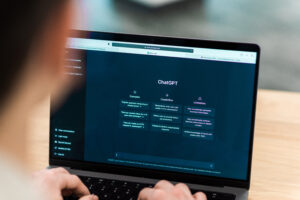AI Therapists? How Enterprises Can Transform Workplace Mental Health

Employee mental health has become a top priority for enterprises worldwide. HR departments are struggling to keep up with employee well-being, facing challenges such as:
- Traditional support programs often go underutilized
- HR teams can’t monitor stress levels across the entire organization in real time
- Employees may hesitate to reach out due to stigma
This is where AI-powered chatbots come in. By combining cloud-native deployment, NLP, and intelligent workflows, enterprises can:
Integrate seamlessly with Slack, Teams, or internal communication tools
Detect early signs of stress in employee communications
Provide anonymous support and guidance
Summarize employee sentiment trends for HR
Why AI Chatbots Are a Game Changer for Enterprises
- Scalability – One chatbot can serve thousands of employees simultaneously
- Anonymity – Employees are more likely to open up to AI than human supervisors
- Early Detection – NLP models can recognize subtle stress indicators
- Data-Driven HR – Aggregate insights empower proactive interventions
A Simple Python Prototype
Below is a Python example demonstrating how a basic AI assistant can analyze employee messages and provide contextual responses. This is a prototype, not a production system.
import spacy
from textblob import TextBlob
# Load English NLP model
nlp = spacy.load("en_core_web_sm")
def analyze_message(message):
doc = nlp(message)
sentiment = TextBlob(message).sentiment.polarity
stress_keywords = ["stressed", "burnout", "tired", "overwhelmed", "anxious"]
stress_detected = any(word in message.lower() for word in stress_keywords)
response = "I’m here to listen. Can you share more details?"
if sentiment < -0.3 or stress_detected:
response = "It seems you might be experiencing stress. Would you like access to HR resources or wellness materials?"
elif sentiment > 0.5:
response = "Great to hear you’re doing well! 🎉 Keep it up."
return response
# Demo
messages = [
"I feel so tired and stressed with work lately.",
"I'm doing great, finished my project!",
"Sometimes I feel overwhelmed and anxious."
]
for msg in messages:
print(f"Employee: {msg}")
print(f"AI Assistant: {analyze_message(msg)}\n")
Scaling for Enterprises
After prototyping, enterprises can enhance the system with:
- Cloud deployment (Render, Railway, AWS, Azure)
- Integration with collaboration tools (Slack, Teams)
- RAG for internal documents (LangChain + LlamaIndex)
- Anonymous reporting for HR dashboards
These features allow a chatbot to operate securely, privately, and at scale, while minimizing setup and training overhead.
Business Impact
Even a lightweight AI chatbot can:
- Reduce HR workload by 30–40%
- Increase employee engagement with wellness programs 2–3x
- Provide proactive, data-driven insights into organizational stress trends
Enterprises gain cost-effective, scalable mental health support without compromising privacy or security.
Final Thoughts
AI chatbots are not a replacement for human HR, but a powerful augmentation tool that enables proactive employee support.
For enterprises looking to enhance well-being and retention, implementing AI-driven mental health assistants is a clear next step.
Early beta programs show promising results and can be deployed entirely in the cloud, integrating seamlessly with enterprise workflows.
